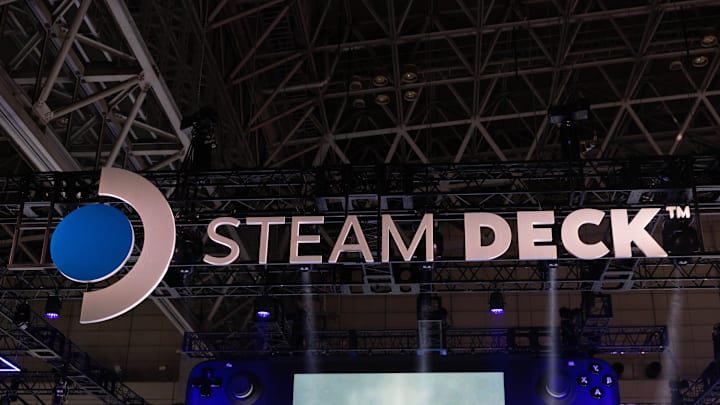What is the Steam Deck?
The Steam Deck is a portable handheld gaming computer produced by Valve. It is designed to support the entire library of games available on the video game distribution service Steam.
The Steam Deck runs on SteamOS, which is based on Arch Linux. It can likewise support open-source and Linux-based games as well as Steam games. SteamOS also includes Proton, which provides a compatibility layer of support for Windows-based games.
The Steam Deck comes in either an LCD or OLED display with the OLED models being slightly more expensive. The display comes in 7" to 7.4" diagonal display size. The Steam Deck also comes with a 40Whr to 50Whr battery that can handle roughly 2-12 hours of gaming depending on the content. And lastly the Steam Deck has a refresh rate of 60Hz to 90Hz.
The Steam Deck Docking Station can also be purchased to connect the handled device to an external monitor or TV screen for a console-like experience.
The Steam Deck Competition
The Nintendo Switch is undoubtedly the most popular handheld game console today and one of the best-selling game consoles of all time. So, how can the Steam Deck even compete with such a looming competitor?
Luckily, there are some key differences between the Switch and Steam Deck. The most obvious difference is that the Switch supports Nintendo's catalog of games while the Steam Deck supports Steam's catalog. With this key difference, there really is no overlap other than the fact that both devices are portable handheld gaming devices. In the end, both devices are great gaming devices depending on what kinds of games you like or what gaming ecosystem you prefer.
The true competitors to the Steam Deck are the Asus ROG Ally and the Ayaneo Flip DS.
Both the ROG Ally and Flip DS support a wider range of games as they are both Windows-based portable PC gaming consoles. They are also comparatively viewed as more powerful performance-wise than the Steam Deck. Yet, both the ROG Ally and Flips DS are generally more expensive than the Steam Deck, and Windows gaming devices are known to be buggy and have issues from time to time.
Why you should consider the Steam Deck
Ultimately, the best handheld console for you will depend on your individual needs, preferences, and budget. What the Steam Deck offers is a seamless integration with the Steam library and its features. Being Linux-based, you also have extensive customization options and open-source software access that you can only get with Steam Deck. The Steam Deck is also generally cheaper than both the rival ROG Ally and Flips DS consoles, respectively. Lastly, the Steam Deck has a vibrant online community that is eager to support fellow gamers.
If you are looking for a quality portable PC gaming device, look no further than Valve's Steam Deck.
Follow GeekSided to stay up to date with all new gaming consoles
